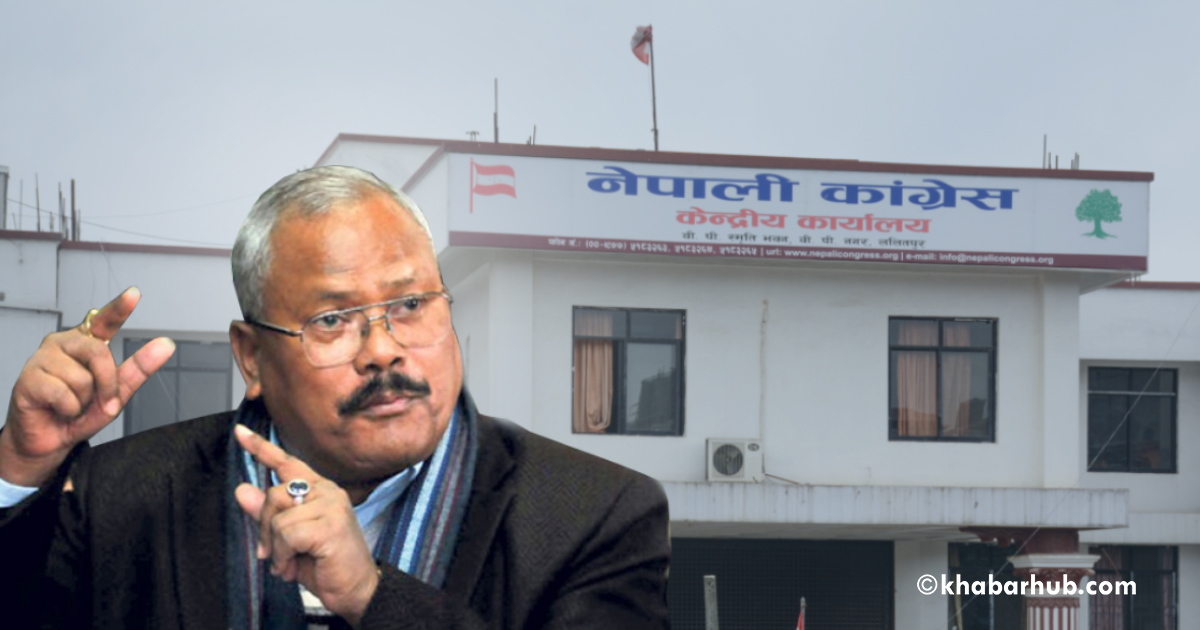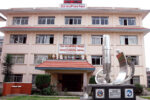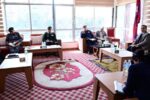KATHMANDU: The charge-sheet filed against Nepali Congress (NC) Vice President Bijay Kumar Gachchadhar at the Special Court seems to create ripples in the political arena.
This becomes evident when NC, the main opposition, obstructed the House of Representatives yesterday hastily dubbing the entire episode as a political vendetta and vengeance against the party.
NC’s reaction came after the Commission for Investigation of Abuse of Authority (CIAA) on Wednesday filed a case against Gachchadhar, and 174 others at the Special Court in the Baluwatar-based Lalita Niwas land grab scam.
Gachchadhar, a 12-time minister in the government, and other charged individuals were under the radar of the anti-graft constitutional body for their involvement in the Lalita Niwas scam.
Widely rated as a shrewd politician, Gachchhadar, is also labeled as ‘opportunist’ as he left the NC in 2008 when Girija Prasad Koirala was the party president, to join the then Madhesi Janadhikar Forum led by Upendra Yadav.
The role of the anti-graft body, CIAA, is now under focus, thanks to the investigation of such cases against prominent leaders, including Gachchadhar as he has been quite often involved in irregularities.
The NC, however, has taken exception on the move saying that the CIAA did not indict Navin Poudel, the son of NCP General Secretary Bishnu Poudel even though a plot of the land in Lalita Niwas was registered in Navin’s name.
The party accuses the anti-graft body of giving immunity to some people by diverting the main issue of the case.
“The whole country is aware of the fact that Navin owns the land,” NC Spokesperson Bishwa Prakash Sharma reacted asking, “Isn’t this a political vengeance the government has spearheaded against the opposition party?”
The CIAA has sought a court order to impose billions in fines on those found guilty charging all 175 individuals of illegally registering over 299 ropani of government land in the name of various individuals by abusing their authority.
The party, which calls itself the country’s oldest democratic force, now took to what has been seen as a ‘criticism approach’ by calling an emergency meeting of the party top leaders in his favor.
Widely rated as a shrewd politician, Gachchhadar, is also labeled as ‘opportunist’ as he left the NC in 2008 when Girija Prasad Koirala was the party president, to join the then Madhesi Janadhikar Forum led by Upendra Yadav.
His astuteness came to the fore again in 2009 when he formed the MJF-Nepal to join the then government led by Madhav Kumar Nepal by breaking ties with Yadav.
It’s all because of his shrewdness, he triumphed to become the country’s Deputy Prime Minister four times under the government of Dr Babu Ram Bhattarai, KP Oli, Madhav Kumar, Nepal, and Pushpa Kamal Dahal.
He won the elections thereafter in 1994 and 1999 to remain at the helm of NC politics as an influential leader. In fact, he is one of the few Nepali leaders who have won all five elections — three parliamentary and two Constituent Assembly — since 1991.
Consider what he had said after rejoining the NC in 2017: “I rejoined the party (NC) to save democracy, and to prevent unnecessary polarization.” He had then said that the party would be stronger to garner majority seats in the parliament in the 2018 elections, which, however, did not happen.
That was not all. He even succeeded to woo party President Sher Bahadur Deuba to induct him as the party Vice President on November 6, 2018 – a decision that was widely criticized from within the NC leaders.
The corruption charge against its vice president has been yet another blow to NC party, which observers say, has failed to play the role of an effective opposition in the parliament as there have been several instances of NC seeking out reasons to raise its voice.
Now that, Gachchadhar’s case has given the party a reason to show its presence both in the parliament and the streets. That’s why the party’s youth organizations, Nepal Student’s Union and Tarun Dal, on Thursday, decided to hit the streets to put pressure on the government.
NC leader Gachchadhar, considered the pillar of Terai politics, was elected to the House of Representatives in the first elections in 1991 after the restoration of democracy in 1990 on NC ticket.
He won the elections thereafter in 1994 and 1999 to remain at the helm of NC politics as an influential leader. In fact, he is one of the few Nepali leaders who have won all five elections — three parliamentary and two Constituent Assembly — since 1991.
Whether or not he re-joined Nepali Congress to ‘save democracy, or to prevent unnecessary polarization’, or to ‘make the party stronger’, the case against Gachchadhar is sure to damage the already ‘ineffective’ NC party.
The question is will Gachchadhar’s shrewdness thrive this time around?








Comment